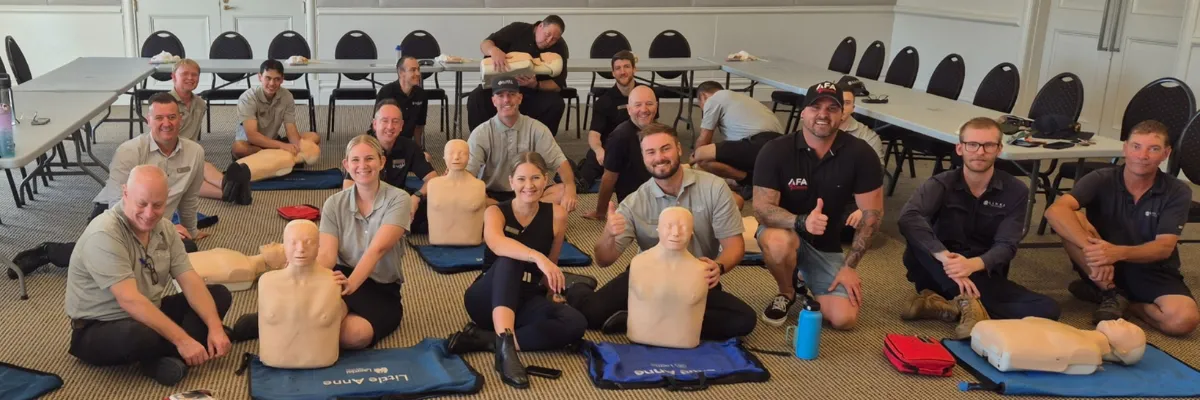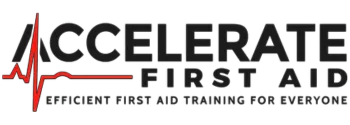
Why Choose Nationally Recognised HLTAID015 Training for Gold Coast Healthcare Professionals?
When the Code Blue alarm sounds at 3 AM in your ICU, will your team respond with confidence or hesitation? For Gold Coast healthcare professionals managing critical care situations, the difference between basic CPR knowledge and nationally recognised HLTAID015 competency can literally mean the difference between life and death.
Choosing nationally recognised HLTAID015 training isn't just about meeting AHPRA requirements—it's about ensuring your clinical team possesses the advanced resuscitation skills demanded in today's complex healthcare environment. Unlike basic life support courses, HLTAID015 provides the comprehensive algorithms, multi-drug protocols, and team dynamics training that ICU nurses, paramedics, and emergency department staff encounter daily.
This guide explores why nationally recognised training matters for your professional credibility, how it differs from non-accredited alternatives, and what to look for when selecting your HLTAID015 provider.
What Is Nationally Recognised HLTAID015 Training?
Nationally recognised HLTAID015 is advanced resuscitation training delivered by a Registered Training Organisation (RTO) that meets Australian Skills Quality Authority (ASQA) standards. Here's what sets it apart from regular first aid courses:
Comprehensive advanced life support algorithms - Including VF/VT, PEA, and asystole management protocols
Multi-drug therapy training - Adrenaline, amiodarone, and atropine administration timing and dosages
Team-based resuscitation scenarios - Real-world Code Blue team dynamics and communication
Post-resuscitation care protocols - Therapeutic hypothermia and advanced airway management
AHPRA and ACHS recognition - Accepted by all Australian healthcare regulatory bodies
The key difference? Non-recognised training might cover similar content, but it won't meet professional registration requirements or hospital accreditation standards. When AHPRA asks for proof of advanced resuscitation competency, or when your facility faces a Joint Commission audit, only nationally recognised HLTAID015 certification will satisfy those requirements.
For Gold Coast healthcare professionals, this recognition matters because:
Queensland Health facilities require nationally recognised training for senior clinical roles
Private hospitals need compliant staff training for insurance and accreditation purposes
Career advancement opportunities often specify "nationally recognised" qualifications as prerequisites
Legal protection in adverse events requires documented, compliant training records

Understanding Nationally Recognised HLTAID015 Certification
What Makes Training "Nationally Recognised"
Nationally recognised training has to come from a Registered Training Organisation that's been approved by ASQA to deliver that specific unit of competency. It's about the trainers having current industry experience, assessment methods meeting national standards, and proper competency verification. When you see "RTO Code" on a certificate, that's your proof this training will be accepted anywhere in Australia.
HLTAID015 vs Basic Life Support Requirements
Basic life support covers chest compressions, rescue breaths, and maybe AED use. But if you're in an ICU, emergency department, or busy medical ward, basic CPR isn't enough when dealing with complex cardiac rhythms, multi-organ failure scenarios, pediatric resuscitation with weight-based calculations, and post-cardiac arrest care including targeted temperature management.
HLTAID015 gives you the algorithms, drug knowledge, and decision-making frameworks you actually use in these situations. It's the difference between knowing how to do compressions and knowing how to lead a Code Blue team.
Regulatory Body Recognition and Compliance
AHPRA doesn't mess around when it comes to continuing professional development requirements. They want to see nationally recognised training because it demonstrates you've met consistent, auditable standards. Same goes for hospital accreditation bodies like ACHS and Joint Commission International. Non-recognised training creates compliance gaps that can put your facility's accreditation status at risk.
Why Gold Coast Healthcare Professionals Need Advanced Recognition
AHPRA Professional Registration Requirements
For nurses working in critical care areas, AHPRA now expects advanced life support competency that goes beyond basic CPR. They want evidence that you can handle the complex scenarios that come with your actual job responsibilities. I've seen registered nurses get caught out during random audits because their life support training wasn't advanced enough for their ICU or emergency department positions.
Hospital Accreditation Standards (ACHS/Joint Commission)
Gold Coast private hospitals like Pindara and John Flynn are serious about maintaining their accreditation status. During accreditation reviews, surveyors drill down into the quality and relevance of training. They want to see that your ICU nurses can actually manage the advanced protocols they're expected to use.
Insurance and Liability Considerations
Professional indemnity insurance has clauses about maintaining appropriate training standards. If you're involved in an adverse event and your advanced life support training doesn't meet industry standards, that can impact your coverage. Medical defense organizations expect healthcare professionals to maintain competency appropriate to their role.
The Risks of Non-Recognised Training
Career Limitations and Professional Consequences
Cutting corners on training certification can seriously damage your career progression. Last year, a clinical nurse consultant from one of the Gold Coast private hospitals missed out on a promotion because her advanced life support training wasn't nationally recognised. HR couldn't approve the appointment because it didn't meet the position's professional development requirements.
When you're applying for senior clinical roles, unit manager positions, or specialty certifications, hiring panels want to see proper, recognised qualifications. Non-recognised training sends a message that you're willing to take shortcuts.
Facility Accreditation Vulnerabilities
A Gold Coast aged care facility recently faced serious scrutiny during their quality review because half their clinical staff had non-recognised advanced life support training. The reviewers required a full retraining program before they'd sign off on continued accreditation. That meant pulling staff off clinical duties, paying for proper training, and dealing with operational disruption.
Legal and Insurance Implications
Non-recognised training creates vulnerabilities that most people don't realize until they're in the middle of a problem.
Professional defense organizations want to see that healthcare professionals are maintaining competency through recognised pathways, not just attending whatever training happens to be convenient or cheap.
Benefits Beyond Compliance for Critical Care Teams
Enhanced Clinical Credibility and Career Advancement
When you walk into a Code Blue with nationally recognised HLTAID015 training, there's confidence that comes from knowing you've been trained to the highest standards. Facilities are always looking for staff who can mentor others, and having nationally recognised qualifications shows you're serious about professional excellence.
Nationally recognised HLTAID015 is often a prerequisite for roles like clinical nurse consultant positions in emergency departments, ICU educator and preceptor roles, paramedic team leader positions, and clinical training coordinator jobs.
Improved Patient Outcomes and Safety Metrics
Gold Coast University Hospital tracked their Code Blue outcomes before and after implementing mandatory nationally recognised HLTAID015 for all critical care staff. The results were significant: 23% improvement in return of spontaneous circulation rates and 18% reduction in time to first shock for shockable rhythms.
The training covers nuanced decision-making during real resuscitation attempts - knowing when to deviate from standard protocols, how to adapt when equipment fails, and how to coordinate a team under pressure.
Team Confidence in Emergency Situations
When an entire clinical team knows they're all trained to the same high standard, there's less hesitation, better communication, and more effective role delegation during emergency situations. Code Blue responses become smoother because staff members are more willing to step into leadership roles when needed.

Choosing the Right Nationally Recognised Provider on the Gold Coast
RTO Verification and Accreditation Checks
Before you sign up for any nationally recognised HLTAID015 course, verify that the provider is actually authorized to deliver this training.
Your verification checklist:
Check the ASQA website - Search for the provider's RTO code and confirm they're authorized to deliver HLTAID015
Verify their scope of registration - Some RTOs can deliver basic first aid but not advanced resuscitation training
Confirm trainer qualifications - Instructors should hold current clinical qualifications plus adult education credentials
Ask about assessment methods - Proper competency assessment includes both written and practical components
Clinical Experience of Training Staff
When choosing a provider, ask about the clinical background of their training staff. You want instructors with current or recent critical care experience, advanced life support certifications, teaching experience in healthcare settings, and understanding of local protocols.
The best HLTAID015 training comes from instructors who've actually used these skills in real clinical situations and can share insights about what works under pressure.
Equipment and Facility Standards
The training environment should reflect the clinical settings where you'll actually use these skills. Quality indicators include high-fidelity simulation equipment, current defibrillator models, proper monitoring equipment, and team-based training spaces.
Red flags include basic CPR mannequins used for advanced training, outdated equipment, cramped training spaces, and instructors reading from slides instead of demonstrating practical skills.
Making the Right Investment in Your Professional Future
Choosing nationally recognised HLTAID015 training is about investing in clinical competency that defines excellent healthcare professionals. The Gold Coast healthcare community deserves practitioners who can respond to emergencies with confidence and provide the advanced care that complex patients require.
Whether you're an ICU nurse manager ensuring your team can handle whatever comes through the door, a paramedic supervisor maintaining the highest response standards, or a clinical educator preparing the next generation of healthcare professionals, nationally recognised HLTAID015 gives you the credibility and competency that excellent patient care demands.
Ready to Secure Your Nationally Recognised HLTAID015 Training?
📞 Cal 0434778243 | 04FIRSTAID now to book your spot
📧 Email [email protected]
Next steps: Verify your current certification → Compare training options → Book your assessment → Advance your career with confidence


